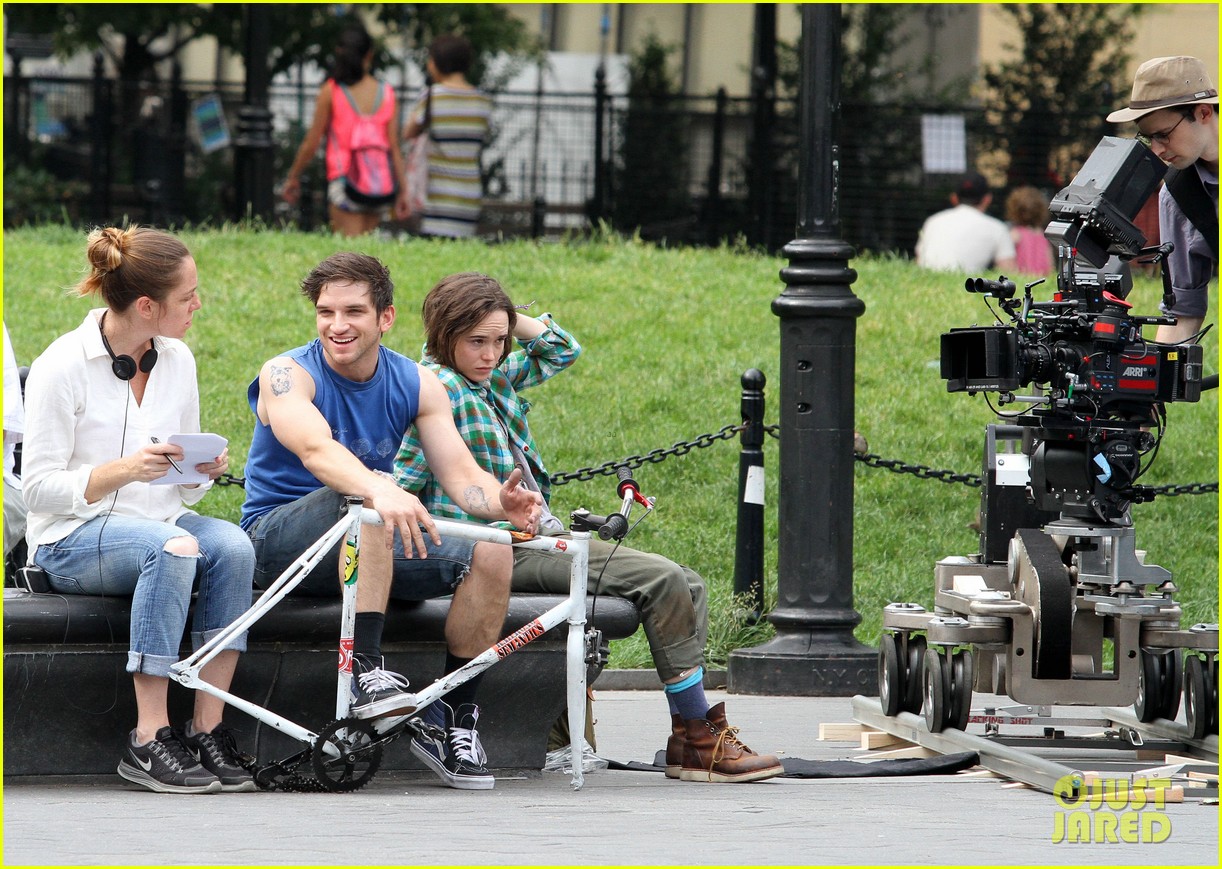Tallulah the film is about Tallulah the character, played with characteristic charm by Ellen Page, she who was nominated and deserved an Oscar for playing the eponymous Juno. It is written and directed by Sian Heder, who has attracted a fine cast for her debut feature, including Alison Janney, Tammy Blanchard, David Zayas (of Dexter fame) and Uzo Aduba (of Orange is the New Black fame, where the two worked together.) The pedigree is undeniable, so it was of great interest to see how successfully Heder could take Tallulah to interesting and thoughtful insights.
There are two telling scenes in this movie, one at the beginning where the character dreams she is floating off into thin air, but wakes to find herself alone; the other comes at the end where another character literally does take off (with assistance in reality, one assumes), symbolising her new-found liberation from the chains that had weighed her down – something she remembers from an earlier discussion.
Indeed, the deceit of Tallulah the protagonist is that she is a free spirit who finds herself weighed down with the responsibilities of motherhood falsely and entirely by accident, but in so doing she exposes attitudes to motherhood in at least two other women, and, ironically, in men too.
To wit: she takes a child from a very troubled woman and pretends to her deserted boyfriend Nico’s mother that the child is hers and Nico’s (Evan Jonigkeit.) Thus, Tallulah finds herself on the horns of a dilemma, knowing that justice will catch up with her sooner or later and her own inner sense of morality demands. By the end, she has been enriched, but ultimately suffers, and maybe gained responsibility in the process.
Her happy-go-lucky personality is subsumed by a sudden sense of responsibility, more than that – for the first time she has worries – chief among which is that they baby is assumed to be hers, but owning up to this deceit is not something she can easily do. Apart from anything else, she knows she will be arrested for kidnapping the baby, but this is not entirely a matter of regret.
The relationship formed with the infant makes Tallulah more responsible and caring, but you do wonder what her future holds. That Tallulah takes the little girl is more reflective of filling a vacuum, of taking care because te mother did not. It is a chance encounter and a moment of spontaneity to “take a toddler into protective custody,” as the detective later puts it. Who is better?
Ah, but it’s not just Tallulah that is examining her inner scruples: the mother Carolyn (Blanchard), more concerned about her evening out than her daughter’s well-being – until she is show up to be a bad mother and apparently loses her child. At the end she has regained her child but lost her husband, and has difficult questions to face up to in her own life. Karma catching up?
Meanwhile, Janney’s Margaret “Margo” Mooney takes in Tallulah, thinking the baby is her grandchild, though she has many more concerns than her wayward son, who has not seen her in 2 years. Her writing career is not going far; her divorced husband, now happily gay, is anot her worry; and the death of her pet terrapin causes her much grief.
Taking in Tallulah and the baby disrupts Margo’s lifestyle in many ways, not all of them bad. It unleashes her imagination, helps her to put her life into perspective. For example, she hates her husband’s art work, hanging on the walls of her maintained apartment, but they have financial value. She is appalled when Tallulah takes her literally and starts to paint over the canvases, but overcomes herself and daubs the work with yellow handprints, a liberating moment indeed.
The experience of living with her new flat mates helps Margo to loosen her uptight and tragic existence and learn to enjoy the little things for the first time in years. She even flirts with the idea of seducing her concierge (a delightful cameo by Felix Solis), who gets the wrong end of the stick.
You might describe Tallulah as a pointed comedy, the sort you would feel uncomfortable laughing at. For example, a comically neglectful mother is an appalling affront to society’s desire for a caring attitude towards children. Maybe an anxiety-provoking comedy in the tradition of the neurotic New York first world problems exemplified by Woody Allen movies. This is exemplified in the raw emotions of the scenes where, in rapid succession, Margo argues with her ex-husband over tea, the real mother inadvertently sees her daughter, Nico returns from exile and the whole story unravels for Tallulah – as it was always going to.
But Tallulah is by no means a depressing film. On the contrary, Heder gives us a strange and unexpected sense of hope and discovery, coaxes from her cast beautifully honed and layered performances, and creates a world in which possibilities, freedom, truth and lies are all weighed against one another. A fine debut.













